For some reason, I’d got it into my head that the main work in the Gringolts Quartet’s midday recital at the Edinburgh Festival was going to be Beethoven’s Quartet in C sharp minor, Op.131. No problem with that, of course; it’s exactly the sort of big serious work you’d expect a big serious international violin soloist like Ilya Gringolts to play when he forms a string quartet, and then to bring on tour to a big serious international festival like Edinburgh. Still, it’s not a piece that you can really listen to before lunch without a certain amount of mental preparation; and it was while revisiting the Festival website that I saw that I’d got it all wrong. They were actually due to play the Quartet Op.106 in G major by Antonin Dvorak.
This was, as they say, a result. Dvorak is unarguably one of music’s good guys; a viola player, a pigeon-fancier, and possibly (the precise facts are disputed) the only genuinely great composer to have qualified as professional butcher. He delayed writing his Op.100, a violin sonatina that’s as unaffected as it is fresh, so that he could dedicate it to his five children. He was even a railway enthusiast; honestly, what’s not to like? But nice composers often finish last, and even today there’s a tendency to write Dvorak off as a more naive Brahms or (worse) a folklorist. The huge popularity (that unforgiveable sin) of a tiny handful of his major works provides cover for critics who can’t hear past his Czech dance rhythms and Mozart-level melodic genius to some of the most sophisticated and emotionally generous music of the late 19th century.
The Gringolts Quartet treated Op.106 as seriously as they’d surely have treated Beethoven, playing while standing up and delivering a decidedly 21st-century reading that peeled back the work’s layers with forensic refinement. That makes it sound arid; and if you’re used to the old Central European way of playing this music, it might have felt disorientating. Gringolts leads his quartet with impressive selflessness, deploying his ardent but tightly focused violin tone to set the outer boundaries of the ensemble sound, rather than slapping a coat of gloss on it like some celebrity fiddlers do when they pay a state visit to the chamber repertoire.
The viola player Silvia Simionescu, in particular, sounded like a kindred spirit to Gringolts, with a burnt umber tone that resembled Jonas Kaufmann’s lower register. But the Gringolts Quartet’s rhythmic drive, its translucency and its cinematic shifts from one dynamic level to another were a collective achievement; and they felt instinctive. Did it work? Well, in the central section of the finale, where Dvorak ranges back over the previous movements — half-fantasy, half-flashback — the group seemed to withdraw almost entirely into its own, remote emotional world. I’m not sure it ever really came back, although the final flourish drew cheers. Better a performance that lays bare the full, sublime vastness of Dvorak’s imagination than one that plays him for easy charm. The Hovis advert still has a lot to answer for.
This all took place in the open air, in a tent-like temporary structure in the Old College Quad. The audience wrapped up against the breeze while the Quartet competed with police sirens and passing buses. Nonetheless, with the acoustic electronically enhanced (but not, apparently, amplified) it sounded surprisingly good, and a similar arrangement was used for the previous evening’s concert performance of Richard Strauss’s Ariadne auf Naxos, which took place in something resembling a polythene Zeppelin hangar on the playing fields of the Edinburgh Academy Junior School. The only really jarring incursion of reality came when the Composer (Catriona Morison) sang her newly minted melody (‘Du, Venus’ Sohn’) and a seagull straight in from Leith cackled derisively back at her from a nearby rooftop.
That was just one more quirk in a noticeably subdued Festival. They’re still doing scaled-down programmes and social distancing in Edinburgh — and when you can find (let alone afford) a hotel room in the New Town in late August, something’s definitely not quite right. But this Ariadne— played by an exuberant Royal Scottish National Orchestra under Lothar Koenigs, and gamely directed by Louisa Muller — had a proper Festival feel, with a cast list (including Dorothea Röschmann as Ariadne and Thomas Quasthoff, mugging it up amusingly as the Major-domo) that was sheer class all the way down. The concert format doesn’t really solve the dramatic problems of this lopsided opera, but it did spotlight the singing; whether Röschmann’s lustrous wine-dark Ariadne, Morison’s touchingly earnest Composer, or the soaring, Italianate tenor of David Butt Philip as Bacchus. And best of all, Brenda Rae as Zerbinetta: handling her soprano like a sparkler, and etching superheated, multicoloured spirals of sound on the evening air. The seagulls had cleared off by then.
Got something to add? Join the discussion and comment below.
Get 10 issues for just $10
Subscribe to The Spectator Australia today for the next 10 magazine issues, plus full online access, for just $10.
You might disagree with half of it, but you’ll enjoy reading all of it. Try your first month for free, then just $2 a week for the remainder of your first year.

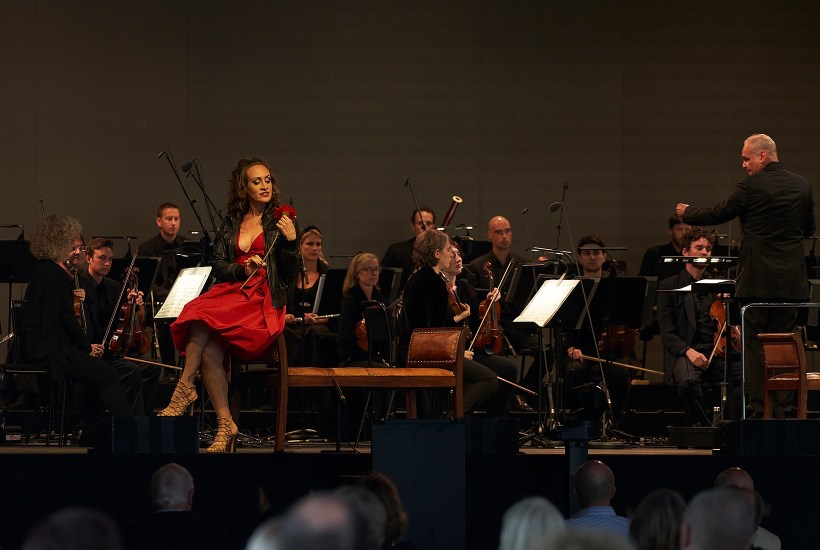
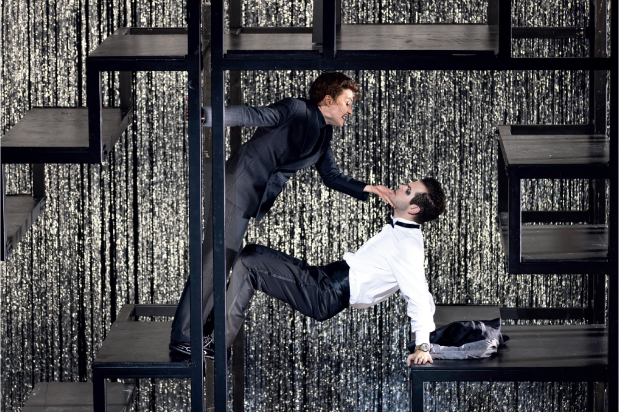
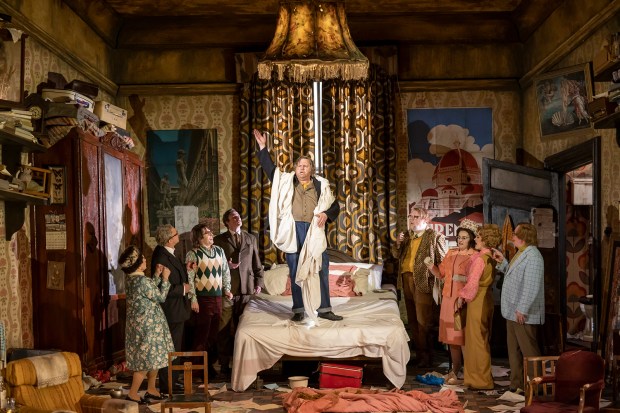
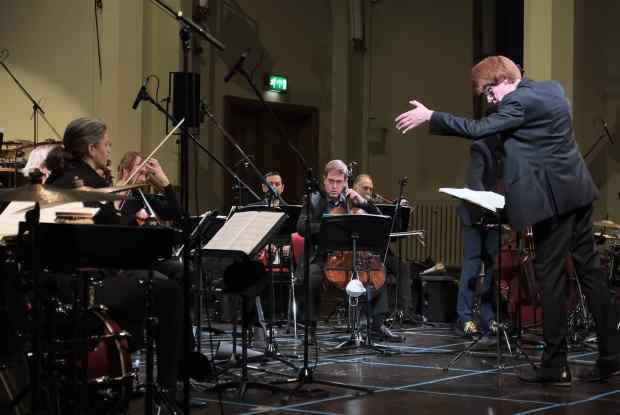
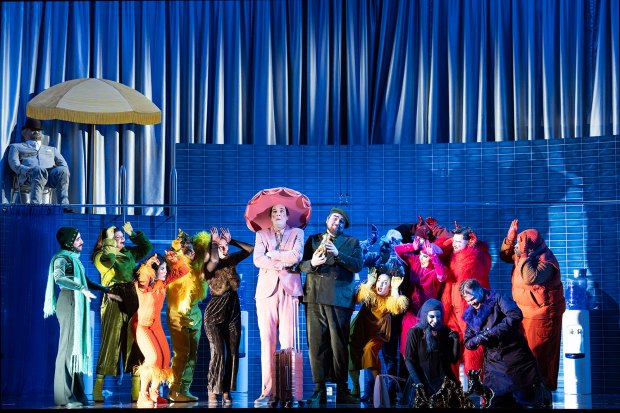
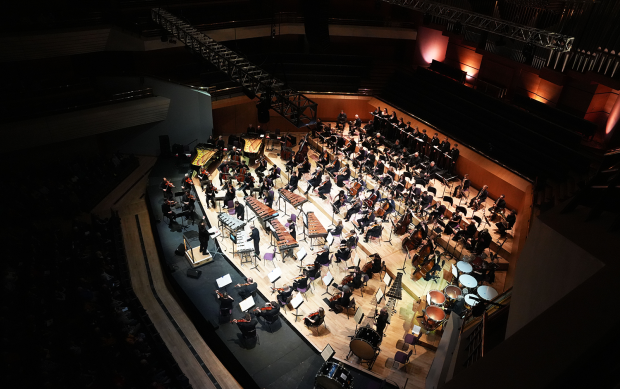







Comments
Don't miss out
Join the conversation with other Spectator Australia readers. Subscribe to leave a comment.
SUBSCRIBEAlready a subscriber? Log in